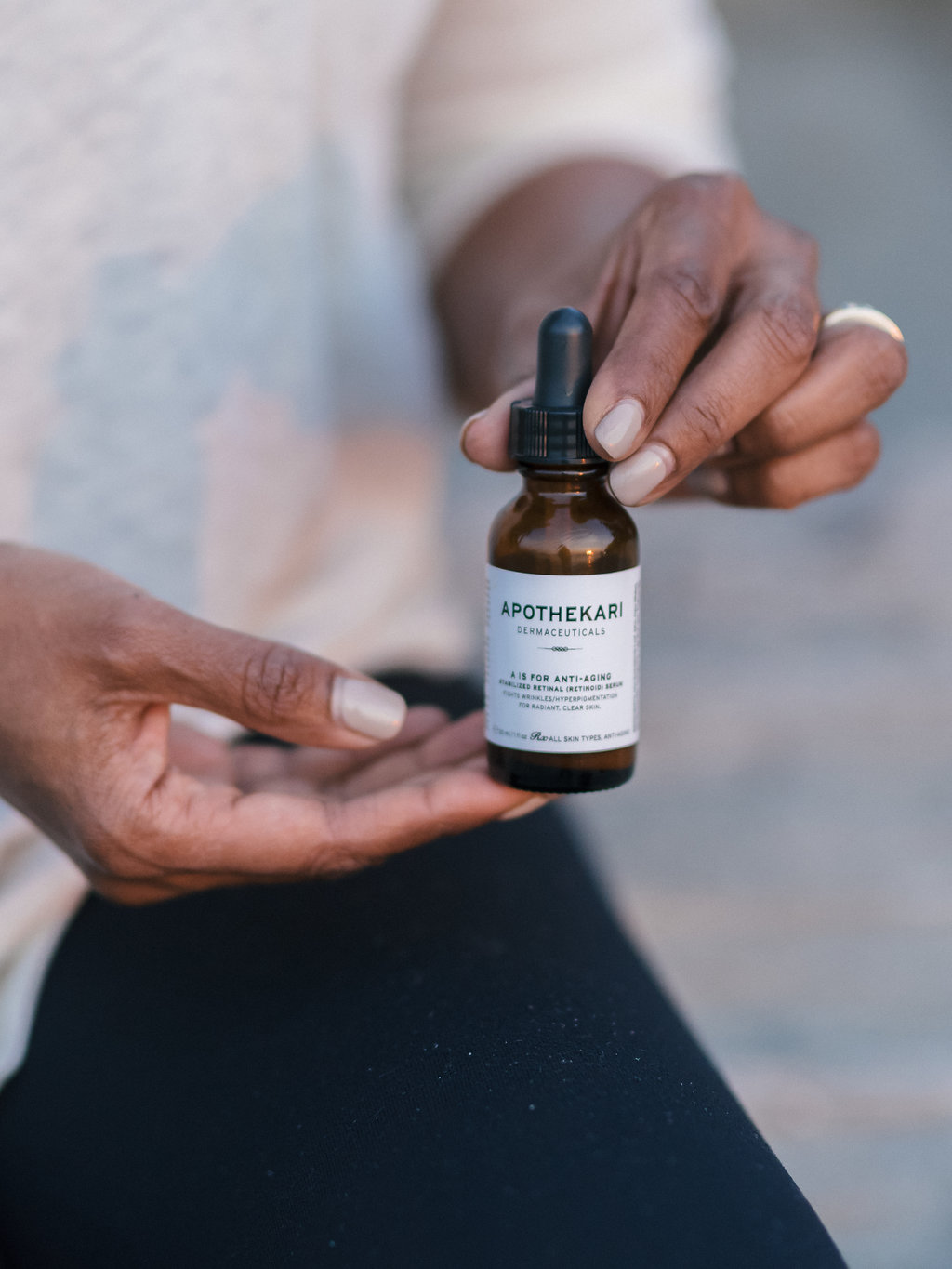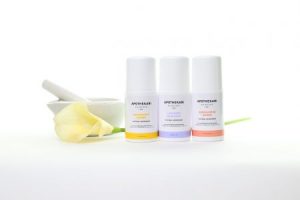Retinol and its relatives retinaldehyde, retinyl palmitate and prescription forms including retinoic acid, tazarotene and adapalene, is one of the most effective skin care ingredients to include in your skin care arsenal. Yet, despite the popularity of this effective class of ingredients, there are many misconceptions regarding its use. In this post we’ll look at 5 of the most common ones in an effort to set things straight.
What is Retinol?
Retinol and other derivatives all come from Vitamin A. It and its related compounds have been around for decades and many studies have shown consistently positive results on skin, including:
- Improving the skin’s texture
- Minimizing fine lines and wrinkles
- Delivering an even skin tone
- Reducing skin oiliness
- Managing blemishes
Retinoids accomplish this by boosting collagen synthesis and increasing skin cell turnover (helping to speed up the development of new skin cells as we age). You’ll notice an ‘exfoliating’ effect, unclogged pores and less dry, flaky skin upon regular use of retinoids. Retinaldehyde, found in our A is for Anti-Aging Serum, also has anti-bacterial activity, making it a valuable addition in the management of acne. Below, I am setting the record straight on 5 commonly held myths regarding retinol:
5 Retinol Myths
1. Retinol (retinoids) Exfoliates
The peeling and redness that accompanies some retinoids is the result of skin irritation and not true ‘exfoliation’. It is also the result of increased skin cell turnover. Despite the painful period of dealing with the peeling, this action is what helps make skin look so good. Build use gradually or try a milder or less sensitizing form of retinoid, like retinaldehyde to minimize this reaction.
2. Don’t Apply Retinoids Around Your Eye
This recommendation comes from the belief that under eye skin is extremely sensitive. While it is indeed sensitive, studies have shown that people who apply retinoids right up to the eyes get the best results. As with all new skin treatments, do a patch test first, start slowly and back off if skin becomes very red and irritated.
3. Stop Applying Retinol if Your Skin Gets Irritated
Initial skin irritation is part of the process and skin tends to adapt after a few weeks so unfortunately, you may have to put up with it. We’re talking here, about light peeling, increased dryness and some redness. With skin that experiences significant discomfort, discontinue use. Retinaldehyde is the least irritating form of retinoid, yet still delivers results.
4. Use the Strongest Retinoid You Can Find
You don’t need to use the most potent retinoid (prescription forms like retinoic acid) to obtain benefits such as increased collagen production and skin cell turnover. While you may get faster results, it’s also true that you may also experience more irritation. This is something I have personal experience with. About to give up with retinoids due to irritation, peeling and redness from various prescription forms, along with non-prescription retinol, I found that my skin tolerated and liked, retinaldehyde very much. In fact, most customers tolerate A is for Anti-Aging very well, with minimal skin irritation.
5. You Should Stop Using Retinol in the Summer
While retinol is light sensitive (it breaks down upon exposure to sunlight), there is no reason to stop using it in the summer. You can use retinol year round but always apply at night to ensure that it doesn’t degrade. Diligently apply an effective broad spectrum sunscreen during the day (SPF 30, at least) and you won’t have anything to worry about.
Caveats
There are a few:
- Don’t use retinoids if you are pregnant or breast-feeding. Although probably safe, there have been links to birth defects with the use of Vitamin A.
- Don’t layer retinoids with benzoyl peroxide and alpha hydroxy acids, which may deactivate them.
- Use caution during waxing, as skin may experience excessive redness with retinoid usage. Don’t use a retinoid for several days before a treatment.
- A very small amount of individuals have ultrasensitive skin and can never tolerate a retinoid. If you’re one of these people, try using a gentle exfoliation treatment once or twice a week and be extra careful to use sunscreen regularly.
Retinoids. What do you say?





